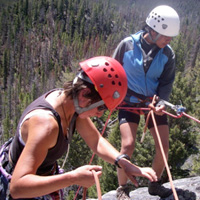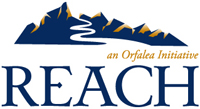Risk Management
The safety of our students, co-workers and visitors is our primary concern. We maintain a high level of safety in all aspects of our programming. While we work to minimize risks associated with the activities in our programs, it is important to realize we cannot eliminate all the risks.

REACH has a range of management strategies to minimize risk concerns, while maximizing the opportunities for our students' learning and development. These strategies include:
- Employment of high quality, experienced instructors with current Wilderness First Aid and CPR qualifications
- Extensive training for all field staff which includes driver, field, and risk management training
- Regular outside auditing of our risk management practices and policies
- Contracting external operators as required to maintain high levels of professional practice and safety in the technical sections of our programs
- Ongoing monitoring of our field staff, including indirect and direct supervision
- A Challenge by Choice philosophy. This means that students are not forced to participate in activities beyond their comfort zone. However, we do ask students to push themselves and do their best to accomplish the challenges they face.
- Medical screening of our participants, which includes personal interviews when possible, as well as minimal requirements for water confidence and fitness levels
- Stated Essential Eligibility Criteria, describing in detail the required skills and abilities of applicants. (English Version - Spanish Version)
- Our students are certified in Wilderness First Aid within the first few months of entering the program.
- Parent orientation meetings to share risk management strategies and program expectations
- Regular checks and maintenance on all our equipment, including vehicles and trailers
- Regular reviews of each program component, which includes assessment of the risks and development of strategies to manage them
- A management team that actively works with all staff to maintain and improve organizational practices
- An organization-wide Crisis Management Plan, with regular training for all levels of staff.
- A set of handbooks recording all of our policies, guidelines and institutional knowledge. These handbooks are updated regularly and are benchmarked against prudent professional practice and industry standards.
If you have any questions or concerns about the safety of our program please contact Ken at ken@orfalea.org.


